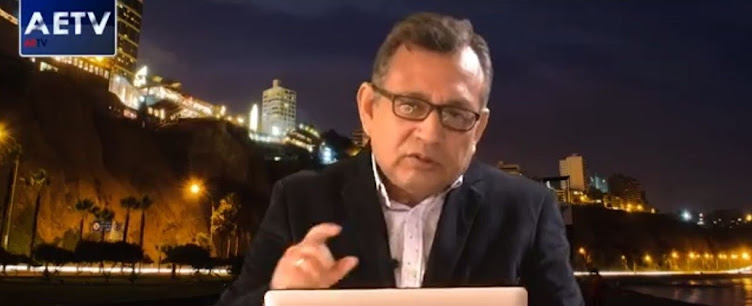
Fernando Rospigliosi, extitular de Interior en el Gobierno de Alejandro Toledo, pide apoyo para lanzar una campaña anti Humala en las regiones cocaleras.
| ID: | 46333 |
| Date: | 2005-11-29 17:14:00 |
| Origin: | 05LIMA5061 |
| Source: | Embassy Lima |
| Classification: | CONFIDENTIAL |
| Dunno: | 05LIMA3267 05LIMA4132 05LIMA4854 |
| Destination: | This record is a partial extract of the original cable. The full text of the original cable is not available. |
C O N F I D E N T I A L SECTION 01 OF 02 LIMA 005061 SIPDIS WHA FOR MONSERRATE, FRIEDMAN E.O. 12958: DECL: 11/21/2020 TAGS: PGOV, PINS, PTER, PHUM, ASEC, PE SUBJECT: FORMER INTERIOR MINISTER ROSPIGLIOSI WORRIED ABOUT OLLANTA HUMALA REF: A. LIMA 4854 B. LIMA 4132 C. LIMA 3267 Classified By: Political Counselor Alexander Margulies for Reasons 1.4 (d) 1. (C) SUMMARY. Former Interior Minister Fernando Rospigliosi and ex-Director of National Defense Ruben Vargas, in an 11/18 lunch with Poloffs, expressed concern over prospects that ultranationalist Ollanta Humala is establishing himself as a political force to be reckoned with. They had few ideas on how to arrest Humala's rise,suggested that the USG review its options, and proposed that the Embassy should expand the role of its communications contractor NEXUM to monitor coverage of Humala and promote anti-Humala news and commentary in the coca regions. (Note: Rospigliosi works for the Human Social Capital (CHS) consultancy, which has been contracted by NAS to provide communications support in anti-narcotics efforts and anti-trafficking in persons (TIP) services. Vargas also works for CHS and is a frequent traveler to the coca regions and other areas in turmoil). END SUMMARY. 3. (C) According to Rospigliosi and Vargas: -- The failed New Years' rebellion by Ethnocaceristas in Andahuaylas, led by Ollanta Humala's brother Antauro, has helped Ollanta in two ways: the radicals and Ethnocaceristas who supported the rebellion have lined up behind him, while Ollanta, by distancing himself from his brother, has been able to portray himself as the "moderate" of the two Humala brothers and thus broaden his appeal to less radical anti-system elements. So long as he doesn't have to define himself, Ollanta could continue to make progress with both sectors. -- Ollanta's political base is in the south and the southern highlands, in areas like Puno, which have a large population of isolated and impoverished small farmers. -- He also enjoys significant support in the southern border city of Tacna, where Ollanta feeds on anti-Chilean sentiment, and in the northern jungle department of Loreto, where he appeals to anti-Ecuadorian feelings. -- Opinion polling, which has Ollanta running at 11 percent, may understate his support, since opinion polls are carried out in urban areas (Ref B). -- Ollanta will not/not obtain enough votes to win the presidency, but a sizable congressional slate (10-20 legislators) could ride into office on his coattails, thereby making him a political force to be reckoned with for the future. -- Should Evo Morales win the presidency in Bolivia, it would have a dangerous "demonstration effect" that would help Ollanta. Should Morales not win the Bolivian election outright, but simply came close enough to allege fraud and then take his campaign to the streets, a successful "street veto" of Bolivia's electoral results by Morales and his followers would encourage Ollanta's supporters by showing them "what is possible." -- Ollanta's wife, Nadine, exercises considerable influence over her husband. Rospigliosi got to know her well in 2001, when Ollanta was seeking amnesty for his rebellion against former President Alberto Fujimori. Ollanta is "a typical military man" in his thinking and has little understanding of political nuances. In contrast, his wife, the product of a middle class family and a journalism major from the University of Lima, has a much better sense of how to communicate with the public. 4. (C) Despite their evident concern over Ollanta Humala, Rospigliosi and Vargas had few suggestions as to how he could be contained. One possibility, they asserted, was to try and divide his following, though they had no strategy for doing so. They warned against making direct attacks on him, opining that these would be counterproductive and only make him stronger. In the end, the former Interior Ministry officials threw the problem into the USG's lap, suggesting that the Embassy expand the duties of its coca zone communications-monitoring contractor, NEXUM, to include news and commentary on Humala to better track Ollanta's influence/popularity in these regions, since much of his support flies under the radar of the major media and urban-based polling. They also suggested that the Embassy consider supporting an anti-Humala communications program. ------- COMMENT ------- 5. (C) We share many of Rospigliosi's concerns regarding Ollanta Humala's rise in the polls and the possibility that the latter will establish a strong pro-Evo pro-Chavez political base following the 2006 elections. That said, we have no/no intention of involving the Embassy in anti-Humala information or commentary campaigns: that is a task for the competing political parties. We agree with Rospigliosi's suggestion that we expand NEXUM's monitoring functions to include Humala, given his pro-coca policies and the likelihood that he will form alliances with cocalero organizations. END COMMENT. STRUBLE | |

No hay comentarios.:
Publicar un comentario